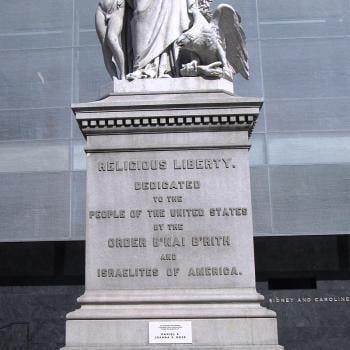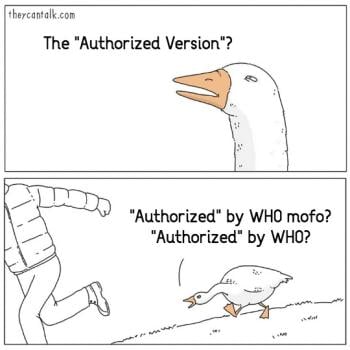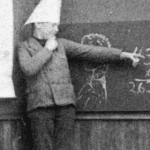In fact, think about whether the intellectual relationship might not go in the other direction. Perhaps the question is how to translate the insights of Mormonism into the language of the culture and the academy rather than how to understand Mormonism in their terms. I find the 20th-century, French-Lithuanian philosopher Emmanuel Levinas a good example in this regard. He described his work as an attempt to translate Hebrew thought into the Greek thinking of philosophy without lessening the truths he found in Judaism or trying to make philosophy into religion.
Translation work of that sort requires, first of all, thorough familiarity with Mormonism, not just with what "everyone knows" or what you've always assumed to be true. There are likely to be possibilities within Mormon history, thought, and culture that you have not previously considered, or perhaps even ones that up until now you have rejected. Translation of Mormonism into the language of the academy requires continuing to be open to your own tradition and continuing to be curious about it, not yet being sure of what we know.
Translation also requires that we be thoroughly familiar with the language of the academy and then find ways of bringing Mormon insights into the discussion, even if that requires new terms and concepts or the revision of old ones. Those insights are not always unique; many we share with other religious traditions, many we share with nonreligious thought. But even when a particular insight isn't unique, it is part of an understanding of the world that is, taken as a whole, unique. The uniqueness of Mormonism must not be lost in translation.
2) As you work on translating between Mormonism and the discipline you are in, don't criticize a cartoon of Mormonism. Think through beliefs and lay out implications, but make sure you know which are fundamental, which are matters of common opinion, and which are matters about which there is diversity of opinion. That is often a knotty problem.
Don't assume that what is said in a sermon or lesson manual can be taken at face-value as a theological proposition. That would be a confusion of rhetorical categories. Don't make a brother or sister a sinner for a word; don't make a brother or sister a saint for a word. Negative criticism often attacks the cartoon version of Mormonism. But it is equally true that explanations and praise of Mormonism too often explain and praise its cartoon version. Get us right even if "right" doesn't fit with the understanding of Mormonism with which you began.
3) Think carefully about your testimony of Mormonism. Is it based on a particular understanding of Mormonism? Is it rooted in our claim to have true doctrine and your understanding of that doctrine? Is it based on a cosmology that is very appealing? Is it based only on the fruits of Mormon history and practice, with little regard for Mormon tenets?
As you think from within Mormonism, poking around in its ideas and teachings as well as its history, you are likely to end up confronting your own testimony. Know in advance what you will be confronting, and prepare to be surprised. Often those surprises will be exhilarating. But sometimes they can be frightening. If frightening, ask whether what is challenged is Mormonism itself or really just your understanding and your preference.
In my experience what gets unsettled in this poking around has always been my understanding, the picture I have made for myself of what I thought Mormonism to be. But my faith and testimony is founded on something other than my picture, so it has survived those surprises even when they were frightening.





